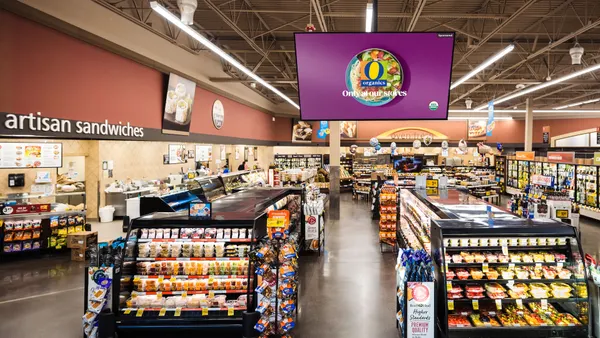Brief:
-
Facebook, the social network with more than 2 billion users worldwide, introduced an ad format that can be linked to WhatsApp, per TechCrunch. Advertisers can show a button on their ads that let people make a call or send a message with WhatsApp, the Facebook-owned mobile chat app with 1.3 billion users.
-
Facebook started testing the feature this year, and is now in the process of rolling it out in most regions except the European Union, which will begin enforcing strict data privacy rules on May 25. Facebook was said to pause company data sharing with WhatsApp last year because of regulator concerns.
-
Brands can buy click-to-WhatsApp ads by creating a Facebook Page post and selecting a menu option to add the button, Marketing Land reported. Facebook’s self-serve ad-buying tool or its advertising API currently doesn’t have the option for WhatsApp buttons. Businesses can still use Facebook’s standard ad-targeting options to reach people by age, gender, location, interests, behavior, demographics and other categories.
Insight:
Facebook has gradually sought ways to monetize its WhatsApp after buying the chat application for $19 billion in cash and stock almost four years ago. More than 1 million Facebook Pages already include WhatsApp numbers in their posts each month and the company is seeking to raise awareness for how businesses can use the app to interact with customers, TechCrunch reported.
Facebook is seeking to raise awareness of how WhatsApp can be used to engage with businesses. Ad executives see potential in WhatsApp to succeed where Messenger has struggled to catch on among businesses, MarTech Today reported. WhatsApp’s is popular among an international audience of people who are comfortable using the same app to chat with businesses as they do with friends, which makes the platform attractive for global businesses.
The click-to-WhatsApp ad format comes as Facebook is said to be developing a standalone WhatsApp app to let businesses communicate with customers. By splitting off business chat functions from WhatsApp, the company is repeating the steps Facebook took in 2014 to make Messenger a standalone app outside the flagship social networking site.









